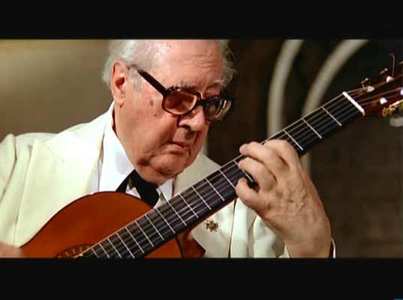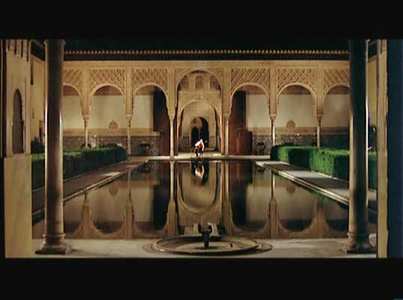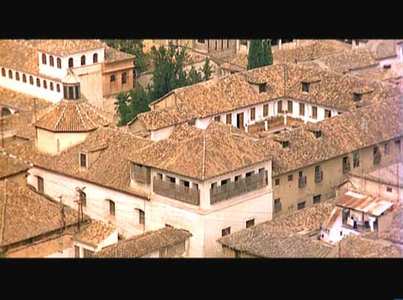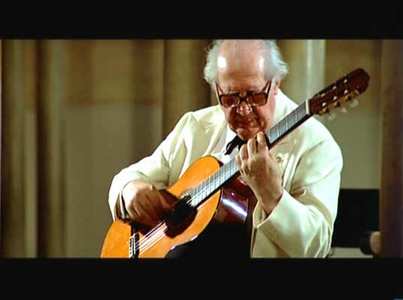Andres Segovia In Portrait
Introduction
The two films on this disc are a worthy celebration of the life and work of one of the twentieth century`s greatest musicians.
Andrés Segovia, apparently, single-handedly (pun intended) brought the Spanish guitar from being `just` a folk instrument into the realms of serious classical music and these films capture him in later life, contemplating his career, and talking about his love for the guitar and the areas of Spain which inspired him to continue on his quest to recue the guitar from "the noisy hands of flamenco players and poor repertoire". He was responsible for persuading many composers such as Villa-Lobos, Torroba, Ponce and others to write for the instrument, and since then, this music has become their own legacy.
He first learnt the piano, cello and violin but quickly discarded these as his teachers were `mediocre`. If this wasn`t the case, classical guitar music could have turned out to be completely different.

Video
The audio on the disc is presented in LPCM stereo, and this is perfectly adequate for the narration and solo guitar music.

Audio
Video quality is extremely good considering the age of the films (1967 and 1975), and despite some flaws (looking like a home-movie at times in the first film), the colours and the light which pervades the South of Spain is caught perfectly.

Features
Extras for a disc such as this are hardly necessary, but we have a short introduction to each film by Christopher Nupen himself (stating much of what is in the booklet that comes with the DVD) and a `music only` option where we can choose whole (or part) pieces which are played in the films themselves.
The films are spoken in English, with subtitles in English, French, German, Spanish and Italian.

Conclusion
Chris Nupen has produced some of the finest musical documentaries for television, and it`s a pleasure to have both these films on one disc after having watched them years ago. I disagree though with the claim on the cover that they are `very different` from each other, as is obvious once you watch them back-to-back.
In both films, Segovia is highly articulate and very persuasive about the guitar, but the second (The Song of the Guitar) provides little new information on his life and attitude towards his instrument, much of which being related in the first (Segovia at Los Olivos). He is obviously highly passionate about the need for new guitar music, as he says that apart from composers such as Sor, Carulli and Giuliani, all the others just showed "a fervent and devoted incompetence". With this sort of attitude, he obviously had the courage to persuade a flamenco-loving populace that the guitar had so much more to say, firstly by arranging music himself (generally by JS Bach - whose music lends itself to arrangements in several styles and for almost any instrument), and then by persuading living composers to write new music for him.
If there is anything to moan about here, it is the slightly over-reverential attitude Nupen obviously has towards Segovia. Every question is preceded by "Maestro…" and Segovia`s musings are obviously well thought out, which gave me the impression that he knew what was going to be asked well in advance, so he had the chance to answer in the most careful manner possible. I`m sure this isn`t unusual in these sort of films though, but the impression we get is that he was the only classical guitarist around, leaving such artists as Miguel Llobet and Regino Sainz de la Maza unmentioned.
This shouldn`t dissuade anyone from owning this disc though, as it shows a master of his art at his near best (a shame such films were not made when he was much younger), and considering he gave his last concert around six weeks before he died at the age of 94, this disc, together with Segovia`s memory and legacy deserve a huge amount of respect.
Your Opinions and Comments
Be the first to post a comment!